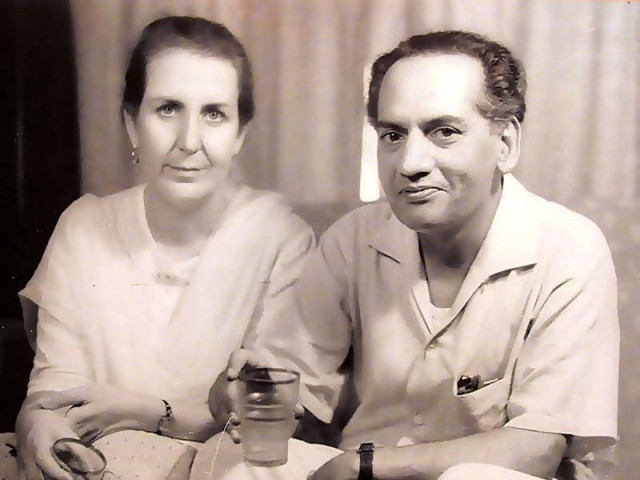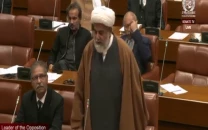Storytelling event pays tribute to Faiz
Three-day event concludes at PNCA with a captivating performance of 'Dastan-e-Faiz'

A three-day storytelling event concluded at the Pakistan National Council of the Arts (PNCA). The final day featured Dastan-e-Faiz, a powerful narrative presented by renowned storyteller Badr Khan.
A large audience from Islamabad and Rawalpindi gathered to listen to the mesmerising tale. Badr Khan, who has been involved in the art of storytelling for over a decade, delivered Dastan-e-Faiz in a captivating manner, earning wide acclaim from the attendees.
The event's chief guest was PNCA DG Muhammad Ayub Jamali. In his closing remarks, he praised the legacy of Faiz Ahmed Faiz, stating, "Our beautiful land is blessed with extraordinary talents, but there is no one like Faiz. Though he left this world decades ago, his political, social, and revolutionary poetry still resonates with us today."
Badr Khan began his narrative by sharing key moments from Faiz's early life. Faiz was born on February 13, 1911, in Kala Qadir, Sialkot. His father, Sultan Muhammad Khan, was a well-educated man, a lawyer by profession, and once served as Chief Secretary to the Emir of Afghanistan, Abdur Rahman Khan. He later published the Emir's biography. Faiz's mother's name was Fatima.
Faiz was an active member of the Progressive Writers' Movement and a prominent proponent of socialist thought. Near his home was a mansion where poets like Pandit Raj Narayan Arman would organise literary gatherings.
These were often presided over by Munshi Sirajuddin, a close friend of Allama Iqbal and former secretary to the Maharaja of Kashmir, Pratap Singh. It was in these poetic circles that Faiz found inspiration.
A mosque near his home was where he offered morning prayers and listened to the sermons of Maulana Muhammad Ibrahim Mir Sialkoti, who also imparted religious education to him.
In 1921, Faiz enrolled in the Scotch Mission School in Sialkot and completed his matriculation there. He later earned his FA from Murray College, Sialkot, where he was taught by scholars like Molvi Mir Hassanwho had also taught Allama Iqbal. Faiz studied Arabic and Persian and later completed his BA at Government College, Lahore.
In 1947, he became the editor of Pakistan Times and was elected Vice President of the Pakistan Trade Union Federation in 1948.
Faiz left an indelible mark on Urdu literature. His first poetry collection, Naqsh-e-Faryadi, was published in 1941 by Maktaba Urdu, Lahore. He continued to publish several landmark works over his lifetime.
Faiz passed away on November 20, 1984, leaving behind a rich legacy of resistance, beauty, and truth in words.











1733130350-0/Untitled-design-(76)1733130350-0-208x130.webp)









COMMENTS
Comments are moderated and generally will be posted if they are on-topic and not abusive.
For more information, please see our Comments FAQ